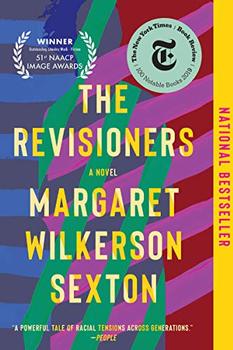Summary | Excerpt | Reviews | Beyond the Book | Read-Alikes | Genres & Themes | Author Bio

This article relates to The Revisioners
In Margaret Wilkerson Sexton's The Revisioners, mixed race protagonist Ava moves into her aging white grandmother's ostentatious New Orleans mansion in order to help out, and also to save money so she can one day afford to buy a home of her own. Throughout the novel, Sexton paints a vivid picture of the income inequality evident in different areas of the city.

In a 2018 report by the Brookings Institute on income inequality in American cities, New Orleans came in at number four (out of the 100 most populous cities in the country). Brookings notes that the 20th percentile of households earn an average yearly income of just $12,373, while the 95th percentile earn an average of $203,254. (To put things in perspective, the average income for American households in 2018 was $61,372, and the poverty line for a family of three in the U.S. in 2019 is $21,330.) This is actually an improvement for New Orleans, which placed at number two in a similar report conducted by Bloomberg in 2014. The Economic Policy Institute found in 2018 that Orleans Parish (where the city of New Orleans is located) is the "most unequal parish in the state," as the "top 1 percent of earners make 29 times more than the bottom 99 percent." The average income for the top earners in Orleans Parish is $1,200,767, while the average income parish-wide is $41,434.
There is an undeniable racial element to this inequality, as Sexton makes evident, which was exacerbated by the fallout from Hurricane Katrina. Research by the nonprofit group Prosperity Now in 2017 stated that there are 100,000 fewer African Americans living in New Orleans now than there were in 2000, as many households relocated and never returned due in large part to the slow clean-up and rebuilding efforts. They further report that the median income for African American households in the city is $25,806, while the median for white households is $64,377. Only 43% of African Americans live in homes they own, whereas the number is 54% for white households.
Gentrification is a huge problem for low-income people in New Orleans (as it is in many other large cities across the country). The chief economist at Apartment List, a website devoted to helping users find affordable rental properties, told the Louisiana Weekly in 2019 that research indicates "income inequality grew faster in New Orleans than in any other large metro over the past decade." He further noted that "[f]or those in the bottom quarter of the income distribution living in New Orleans, their incomes are 75 percent lower than the median but their housing costs are only 25 percent lower." In other words, it is tremendously difficult for those struggling financially to find a reasonably affordable place to live in the city.
Prosperity Now is working with several local nonprofits to address the racial income divide in New Orleans, including Jericho Road Episcopal Housing Initiative, which seeks to address the affordable housing problem in the city, and MQVN Community Development Corporation, which provides assistance to residents in the areas of healthcare, business development, job creation and social services.
New Orleans has long been known for its cultural, racial and ethnic diversity, but it also has a dark history of racial inequality and violence, from slavery to the aftermath of Katrina, as Margaret Wilkerson Sexton explores urgently and astutely in The Revisioners.
Aerial shot of New Orleans, courtesy of New Orleans.
Filed under Society and Politics
![]() This "beyond the book article" relates to The Revisioners. It originally ran in January 2020 and has been updated for the
August 2020 paperback edition.
Go to magazine.
This "beyond the book article" relates to The Revisioners. It originally ran in January 2020 and has been updated for the
August 2020 paperback edition.
Go to magazine.
Never doubt that a small group of thoughtful, committed people can change the world...
Click Here to find out who said this, as well as discovering other famous literary quotes!
Your guide toexceptional books
BookBrowse seeks out and recommends the best in contemporary fiction and nonfiction—books that not only engage and entertain but also deepen our understanding of ourselves and the world around us.